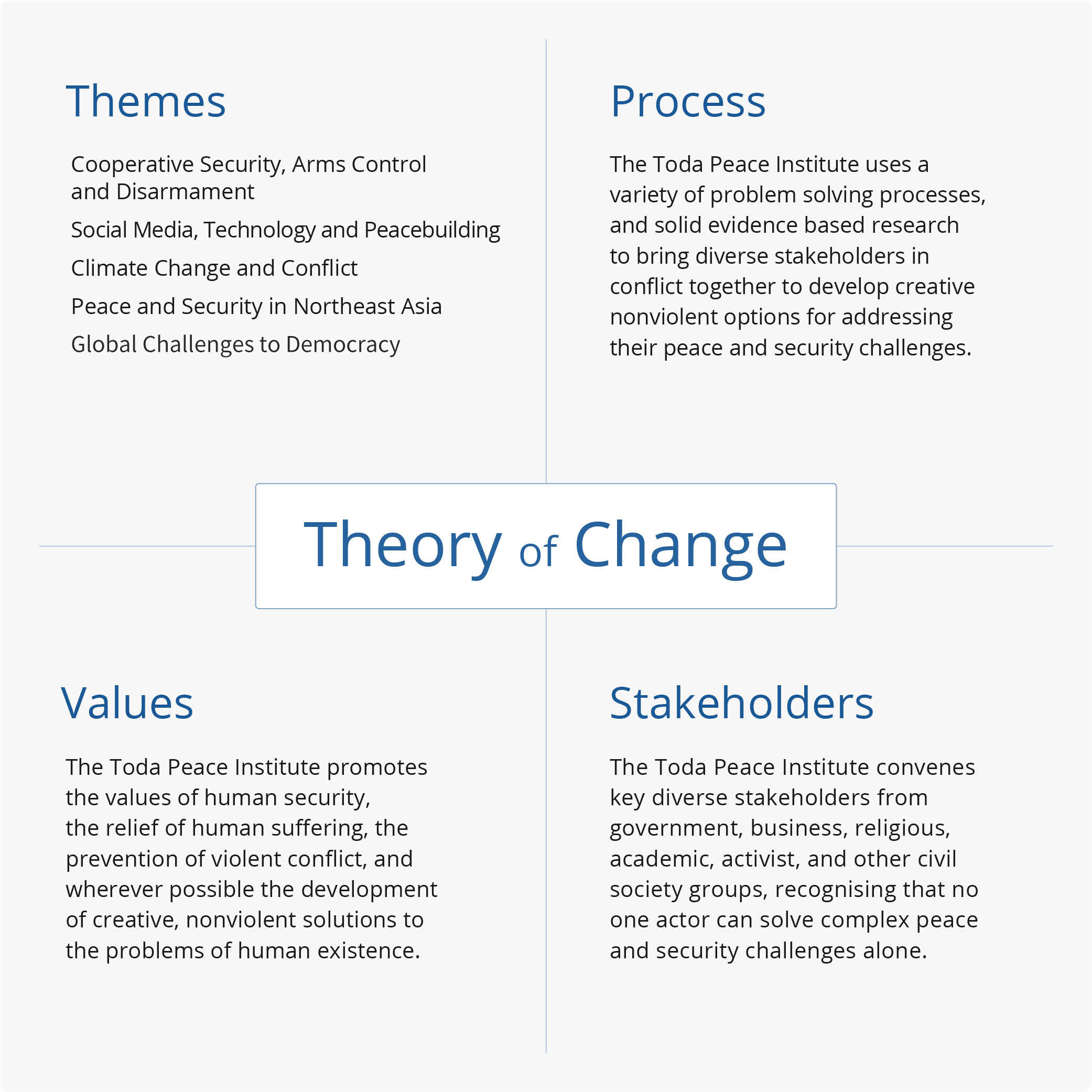The Toda Peace Institute’s Theory of Change

If creative and innovative problem-solving and dialogue processes, and solid evidence-based policy-relevant research, are mobilized to bring diverse stakeholders in conflict together then they can develop sustainable and inclusive nonviolent options for addressing their peace and security challenges.
Toda’s leading-edge approaches build on peacebuilding practices that have been developed since its inception and apply them in new ways. For example, we use technology to foster dialogue across political divides and harness deliberative democracy processes to enable people to engage in large- and small-scale problem solving. We bring indigenous voices into climate policy-making discussions. We focus attention on ways of reinforcing fragile democratic systems. We engender trust-building and mutual understanding in North East Asia. And we promote co-operative security-building, arms control and disarmament solutions at regional and global levels.